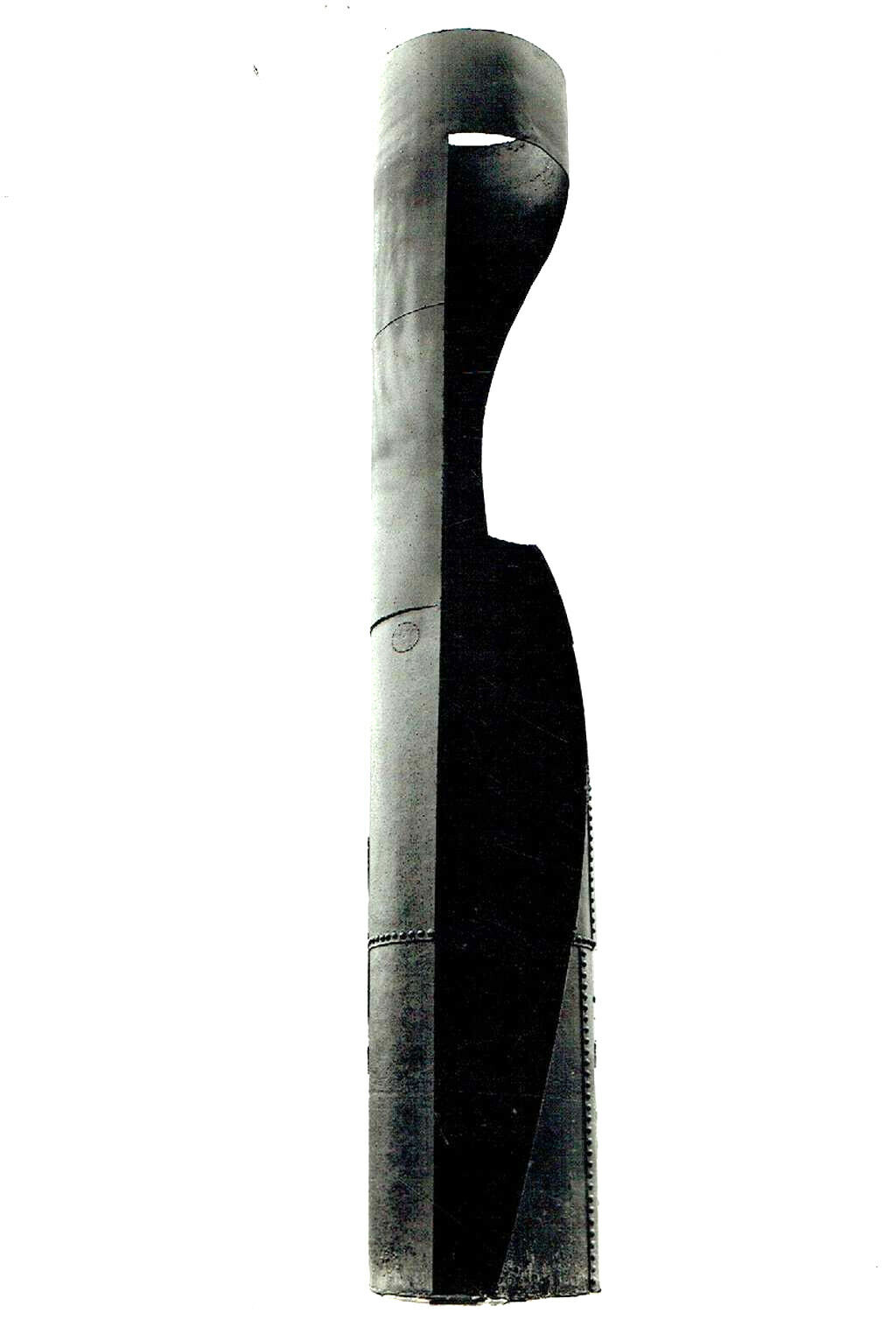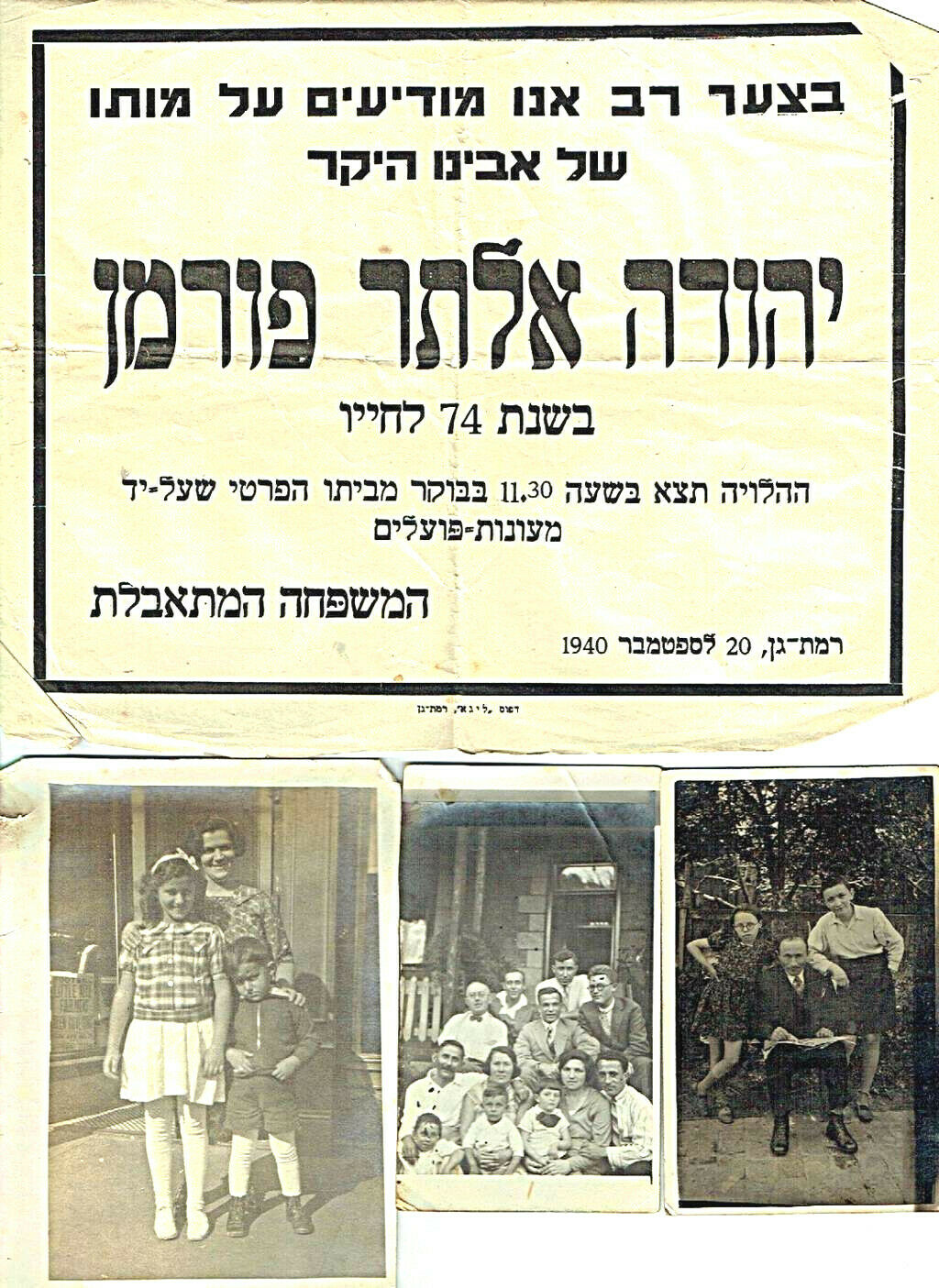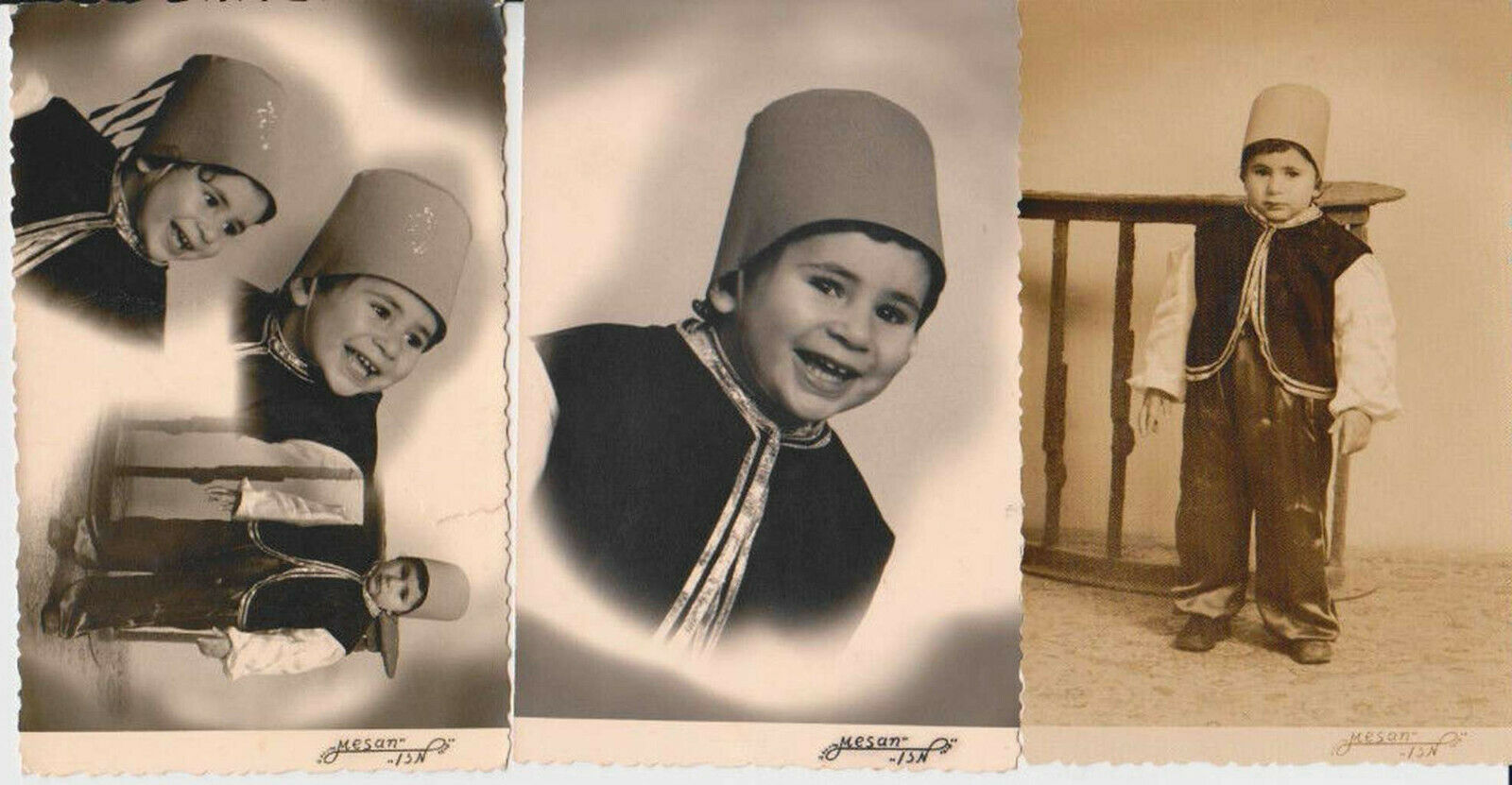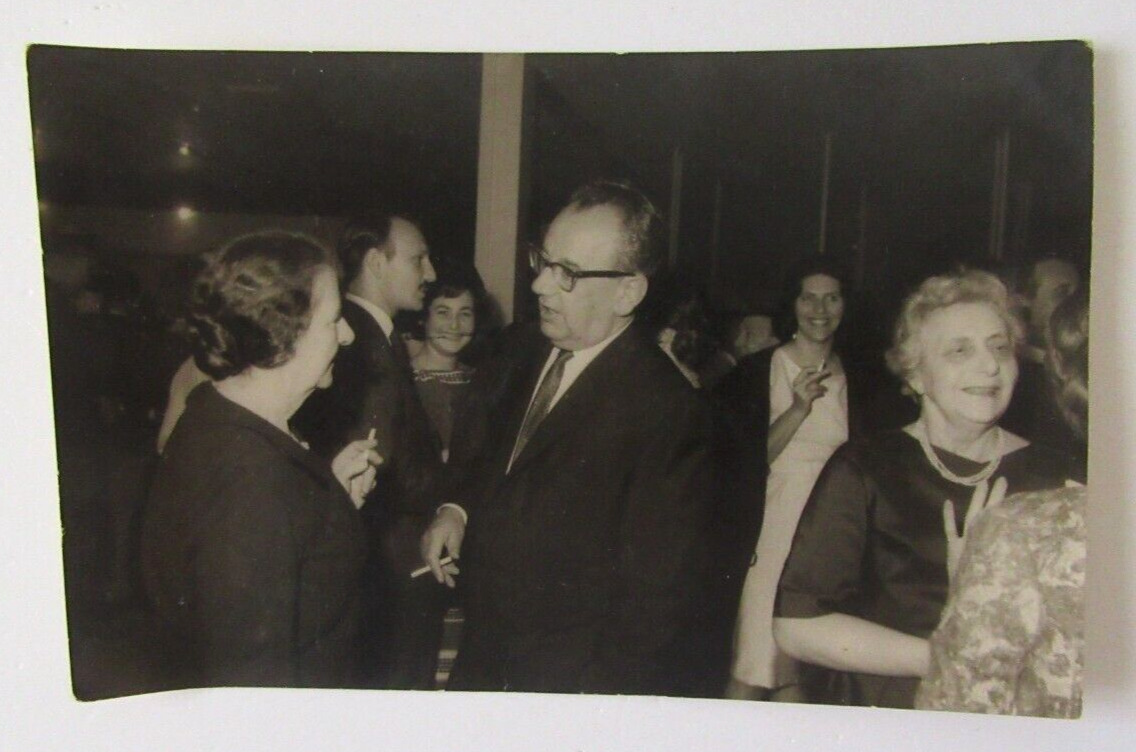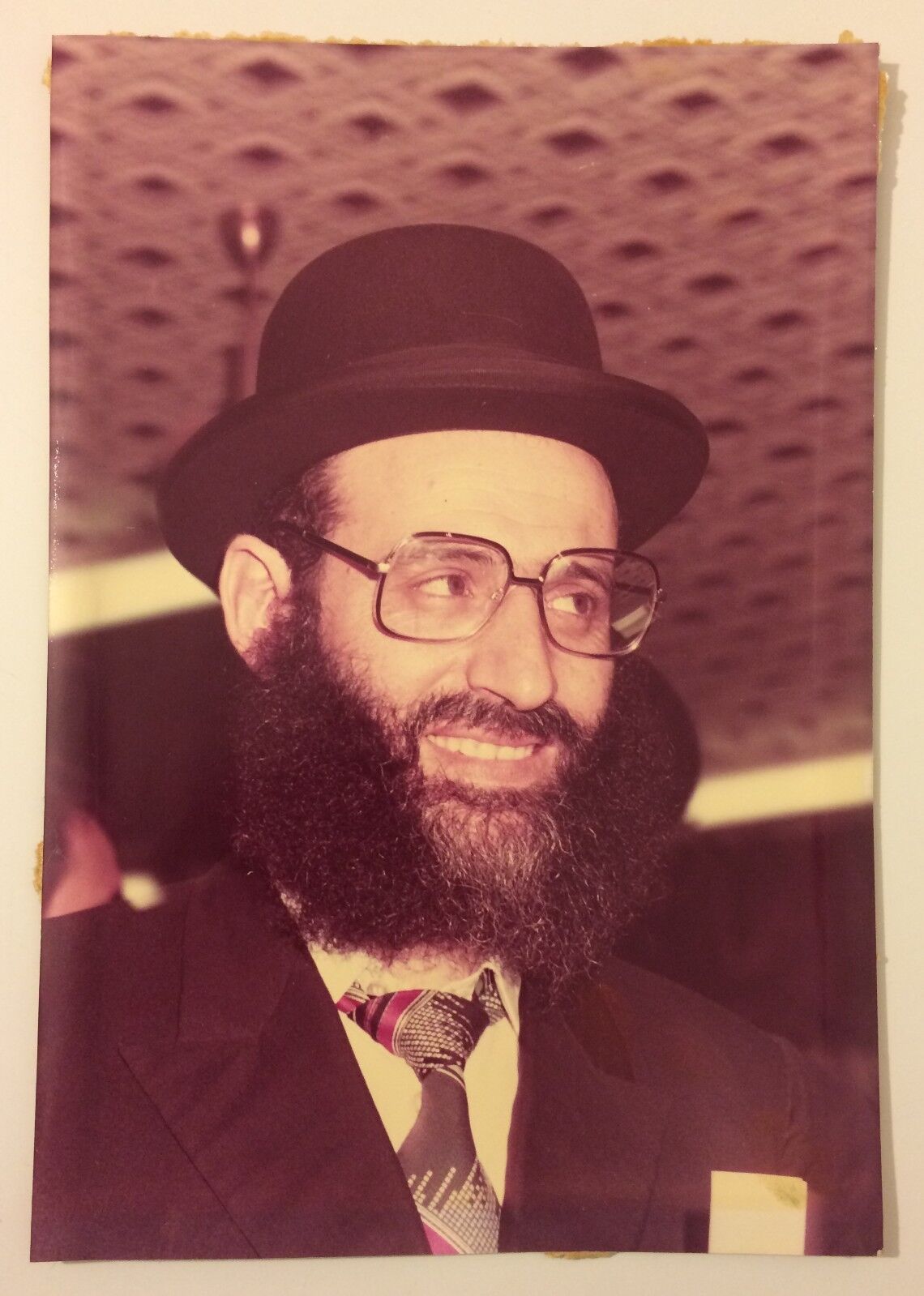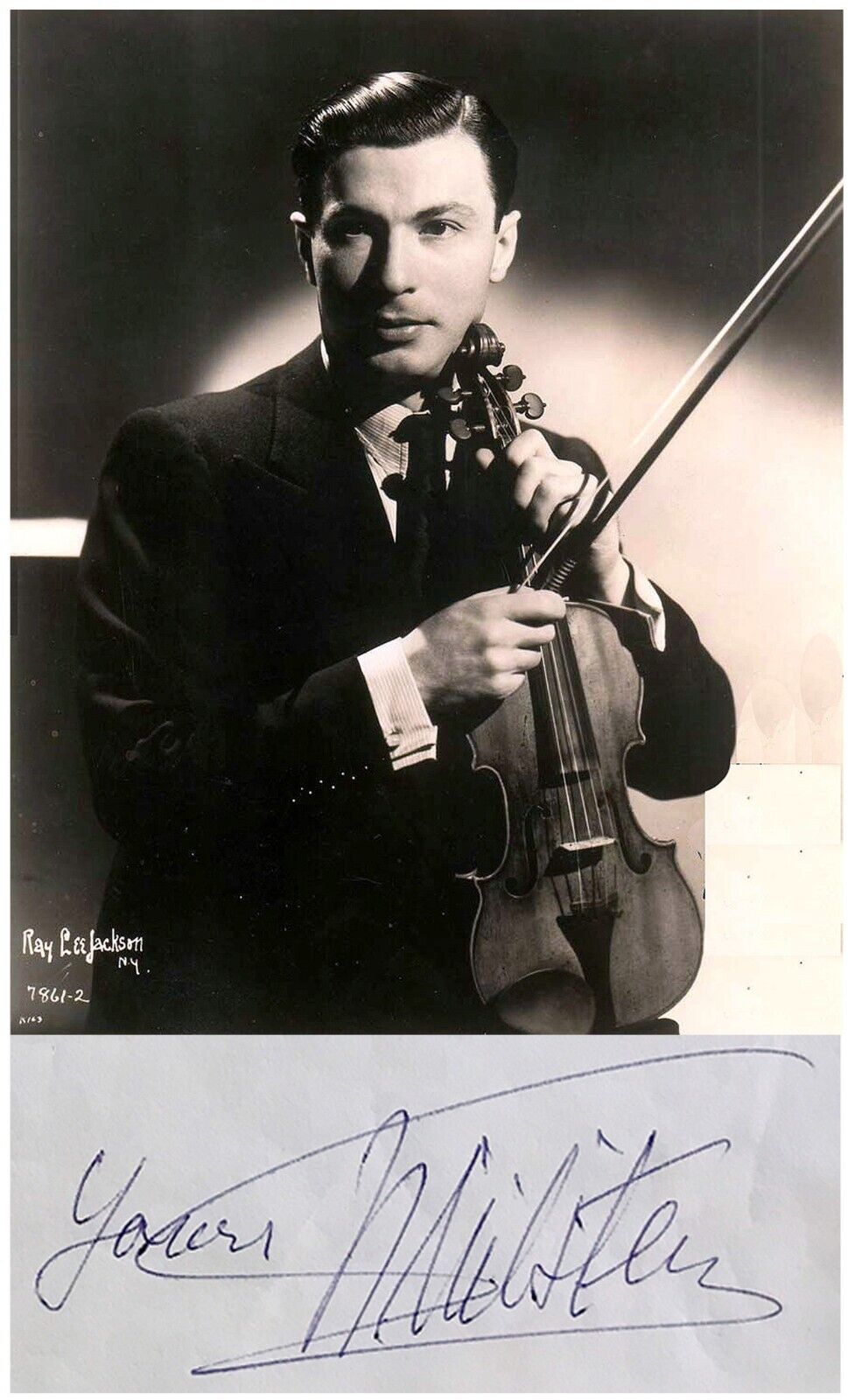-40%
1960 Israel MOVIE POSTER Film SONS AND LOVERS Hebrew D.H.LAWRENCE Academy AWARDS
$ 50.16
- Description
- Size Guide
Description
DESCRIPTION:
Here for sale is an EXCEPTIONALY RARE and ORIGINAL illustrated VINTAGE POSTER for the ISRAEL release of the
British drama
film "
SONS AND LOVERS
" in ISRAEL. Based on the D.H.LAWRENCE C novel. Starring
TREVOR HAWARD , DEAN STOCKWELL , WENDY HILLER
and
DONALD PLEASENCE
. This is an original Israeli Hebrew design , Specificaly made for the Israeli
CINEMA
halls by 20th Century Fox. Text in HEBREW . Quite archaic Hebrew.
Size around 27" x
38
" ( Not accura
te )
.The condition is
quite
good .
Folding marks, Tiny creases and stains - Nothing which a framed glass won't easily hide.
( Pls look at scan for accurate AS IS images ) Poster will be sent rolled in a special protective rigid sealed tube.
AUTHENTICITY
:
The VINTAGE POSTER is fully guaranteed ORIGINAL , It is NOT a reproduction or a recently made reprint or an immitation , It holds a with life long GUARANTEE for its AUTHENTICITY and ORIGINALITY.
PAYMENTS
: Payment method accepted : Paypal & All credit cards.
SHIPPMENT
: SHIPP worldwide via registered airmail is
$ 25
. Poster will be sent rolled in a special protective rigid sealed tube. Will be sent within 3-5 days after payment .
Kindly note that duration of Int'l registered airmail is around 14 days.
Sons and Lovers is a 1960 CinemaScope British film adaptation of the D. H. Lawrence 1913 novel of the same name. It was adapted by T. E. B. Clarke and Gavin Lambert, directed by Jack Cardiff.[3] and stars Trevor Howard, Dean Stockwell, Wendy Hiller, Mary Ure, William Lucas and Donald Pleasence. The film won an Academy Award for Best Cinematography (Freddie Francis) and received nominations in six additional categories,[4] and was entered into the 1960 Cannes Film Festival.[5] Contents 1 Plot2 Cast3 Production4 Reception5 Academy Awards6 References7 External links Plot A young man with artistic talent who lives in a close-knit, English coal-mining town during the early 20th century finds himself inhibited by his emotionally manipulative, domineering mother — a literary, psychological interpretation of the Oedipus story. Gertrude Morel, miserable in her marriage, puts her hope into her son, Paul. In her attempt to manipulate Paul's life she jealously attempts to prevent Paul from having a relationship with any woman. However, Paul goes to the city for a job and becomes enchanted with self-actualized and "liberated" feminist co-worker, Mrs. Clara Dawes, who is married. Paul and Clara become involved sexually and Clara realizes that Paul's emotional attachment, as with her own, lies with another person — in Paul's case, his mother. Gertrude learns of Paul's involvement with Clara, and she slips into a morose depression and physical sickness. Paul flees to his mother, to care for her and sit by her side. After his mother's death, Paul meets the girlfriend of his youth, Miriam, and tells her that because of his codependency with his mother he intends to live the rest of his life without any serious relationship with another woman — in essence fulfilling his mother's desire and objective. Cast Trevor Howard as Walter MorelDean Stockwell as Paul MorelWendy Hiller as Gertrude MorelMary Ure as Clara DawesHeather Sears as Miriam LeiversWilliam Lucas as William MorelConrad Phillips as Baxter DawesErnest Thesiger as Henry HadlockDonald Pleasence as Mr. PuppleworthRosalie Crutchley as Mrs. LeiversSean Barrett as Arthur MorelElizabeth Begley as Mrs. RadfordEdna Morris as Mrs. AnthonyRuth Kettlewell as Mrs. BonnerAnne Sheppard as RoseDorothy Gordon as Fanny Production The movie was filmed on location in Nottingham, England and at the Pinewood Studios, Iver Heath, Buckinghamshire, England. The musical theme by Mario Nascimbene was popular and was arranged for both piano and orchestra. Reception Bosley Crowther of the New York Times said: "Sons and Lovers is sensitively felt and photographed in Jerry Wald's British-made film version of (Lawrence's novel). ... Jack Cardiff, cameraman turned director, has filled it with picture poetry. ... The drabness of a north-of-England coal town, the warmth of a poor coal miner's home, the bleakness of the wintry English country near Eastwood, where Lawrence was born — all are caught and concentrated in this film, appropriately black-and-white, which puts forth the generalized Lawrence story in a stunning pictorial style. ... (T)he most dynamic and emotional character in the film is the discarded miner-father, played brilliantly by Trevor Howard. His frequent violent flare-ups of rebellion, his pitiful complaints of chagrin and his always underflowing indications of a sense of being not wanted and alone are perhaps the most clear articulations of the theme of frustration in the tale. Through him is expressed most intensely the realization of the mortality of young love."[6] Academy Awards Winner Best Cinematography (Black and White) (Freddie Francis)Nominee Best Actor in a Leading Role (Trevor Howard)Nominee Best Actress in a Supporting Role (Mary Ure)Nominee Best Art Direction-Set Decoration, Black-and-White (Thomas N. Morahan, Lionel Couch)Nominee Best Director (Jack Cardiff)Nominee Best Picture (Jerry Wald, producer)Nominee Best Writing, Screenplay Based on Material from Another Medium (T.E.B. Clarke, Gavin Lambert).[4] Sons and Lovers (1960) Screen: Tepid Passions:Lawrence's 'Sons and Lovers' Has Premiere By BOSLEY CROWTHER Published: August 3, 1960 D. H. LAWRENCE'S "Sons and Lovers" is sensitively felt and photographed in Jerry Wald's British-made film version of it, which opened yesterday at the Victoria and Beekman Theatres. The theme of the classic English novel is faithfully preserved: joy and sorrow and strange frustration grow out of the strong attachment of mother and son. An excellent cast of British actors (and one American) play it well. And Jack Cardiff, camera man turned director, has filled it with picture poetry. The drabness of a north-of-England coal town, the warmth of a poor coal miner's home, the bleakness of the wintry English country near Eastwood, where Lawrence was born—all are caught and concentrated in this film, appropriately black-and-white, which puts forth the generalized Lawrence story in a stunning pictorial style. But, oddly enough, the powerful passions that race and foam through the original tale, which shocked and dismayed a lot of people when it was published in 1913, do not surge up in the picture. The strong possessiveness of a mother's love for a son, transferred to him from his father, comes through as a hot, but essentially lava-like, strain of attentiveness and jealous affection untouched by the thrust of Dr. Freud. The love of the son for the mother is likewise a strong and gemlike thing that indicates nothing more subconscious than companionship and gratitude. And the lust of the lad for two young ladies who gracefully swim into his ken is confined to one mild tangle in a hayloft and a slightly more ferocious one on a bed of a seaside hotel. Actually, what appears to have happened is that Mr. Cardiff, in attempting to give his film a general feel of poetic fatalism, has let it fall into an emotional monotone. The mother is a wonderful woman who Wendy Hiller plays with magnificently eloquent suggestions of barrenness and poignancy. But she makes the most ladylike and gentle tugs on the obvious silver cord. The son, played politely by Dean Stockwell, the American in the cast, is a model of filial devotion who seldom raises his libidinous voice. Heather Sears as the spiritual sweetheart, Miriam, and Mary Ure as the passing mistress, Clara, are put so often to being sad and sensitive that one gets but faint emotional shock from them. Ironically, the most dynamic and emotional character in the film is the discarded miner-father, played brilliantly by Trevor Howard. His frequent violent flare-ups of rebellion, his pitiful complaints of chagrin and his always underflowing indications of a sense of being not wanted and alone are perhaps the most clear articulations of the theme of frustration in the tale. Through him is expressed most intensely the realization of the mortality of young love. Unfortunately, for some uncertain reason, the script writers, Gavin Lambert and T. E. B. Clark, have side-stepped the act of euthanasia that is a critical feature of Lawrence's tale. The haunting scene in which the son gives his mother an overdose of pain-killing drugs when she is dying agonizingly of cancer has been changed to a touching little bit in which he watches her die serenely of a heart attack. Somehow, this plainly euphemistic attitude toward Lawrence's fierce and fine account runs through the whole handsome picture and hobbles its real potential punch. The Cast SONS AND LOVERS, screen play by Gavin Lambert and T. E. B. Clarke, from the novel by D. H. Lawrence; directed by Jack Cardiff; produced by Jerry Wald for Twentieth Century-Fox. At the Victoria Theatre. Broadway and Forty-sixth Street, and the Beekman Theatre, Second Avenue and Sixty-fifth Street. Running time: 103 minutes. Morel . . . . . Trevor Howard Paul Morel . . . . . Dean Stockwell Mrs. Morel . . . . . Wendy Hiller Clara Dawes . . . . . Mary Ure Miriam Lievers . . . . . Heather Sears William . . . . . William Lucas Baxter Dawes . . . . . Conrad Phillips Mr. Pappleworth . . . . . Donald Pleasence Henry Hadlock . . . . . Ernest Thesiger Miriam's Mother . . . . . Rosalie Crutehley Mrs. Radford . . . . . Elizabeth Begley Arthur . . . . . Sean Barrett My Missing Picture Nominees: Sons and Lovers (1960) By Edward Copeland Before I begin discussing the 1960 best picture nominee Sons and Lovers, based on the famed D.H. Lawrence novel and which earned acclaimed Oscar-winning cinematographer Jack Cardiff his only nomination as a director, I'd like to use this occasion to point out yet another reason any true film lover should dump their streaming only Netflix option in favor of DVDs only. Sons and Lovers is one of the few Oscar nominees for best picture that I've never been able to see, but Netflix only carries it on streaming so I've been trying to watch any titles they have only on streaming before I switch to DVDs only. Cardiff filmed Sons and Lovers in luscious black-and-white CinemaScope (actually his d.p., the equally famous and lauded Freddie Francis was the cinematographer on the film). While you will see the opening and closing credits in the intended aspect ratio, the film in between will be cropped and squeezed for no good reason. Other streaming titles are shown in CinmaScope from beginning to end. Another strike against Netflix streaming. You won't get that on the DVD unless it's a DVD that only offers fullscreen. As you might expect, a film being directed by Jack Cardiff, the brilliant d.p. behind the look of the Michael Powell and Emeric Pressburger classics A Matter of Life and Death aka Stairway to Heaven, Black Narcissus (for which he won the Oscar for cinematography) and The Red Shoes. He also shot Under Capricorn for Hitchcock, The African Queen for Huston, War and Peace for King Vidor (earning another Oscar nomination) and garnered his final cinematography nomination for Joshua Logan's Fanny in 1961. Believe it or not, he even served as d.p. on Rambo: First Blood Part II. The Academy saw fit to give him an honorary Oscar for his long career of exceptional work at the ceremony held in 2001. Freddie Francis, his d.p. for Sons and Lovers, took home the Oscar for his work on the film. Despite a long list of impressive work, Francis was only nominated for the Oscar one other time — for Glory — and he won. Some of Francis' other films included Scorsese's version of Cape Fear and, his final film, David Lynch's The Straight Story. Also on Cardiff's crew as an assistant director was Peter Yates, who would go on to direct films as diverse as Bullitt and Breaking Away. I wish I could say that I've read the D.H. Lawrence novel upon which the film is based, but the title itself makes it obvious that the adaptation by Gavin Lambert (who co-wrote Nicholas Ray's films Bigger Than Life and Bitter Victory) and T.E.B. Clarke (Oscar-winning writer of The Lavender Hill Mob) has taken some big liberties from the book. I mean the title indicates multiple sons, but aside from one brief scene that kills off Arthur (Sean Barrett), son of Walter and Gertrude Morel (the great Trevor Howard and Wendy Hiller, by far the film's greatest asset beyond its look and design), a couple of scenes with their son William (William Lucas), who lives in London, the film revolves around their son Paul (Dean Stockwell). According to summaries of the novel online, Lawrence's book begins with a focus on the turbulent marriage of Walter, a working class miner in Nottingham, England, with a penchant for liquor and Gertrude, who develops unhealthy attachments to her sons. William still moves to London in the book, but is the eldest son and Gertrude's favorite, though he takes ill and dies. Arthur is an afterthought in the book and they also have a sister named Annie who doesn't exist in the film at all. None of the children follow dad into the mines. A near-death experience for Paul (in the novel, not the film) makes Gertrude transfer her obsession to him. Aspiring to be an artist, he gets a chance to move to London when a patron (Ernest Thesiger, who played Dr. Pretorious in 1935's Bride of Frankenstein) sees promise in Paul's work, but Paul abandons his chance to leave when he witness an incident of his drunken father mistreating his mother and stays, fearful of what his lout of a dad could do to his mom. His mother also subtly and not so subtly interferes with Paul's romances, first with the overly pious Miriam (Heather Sears), who teases the poor lad unmercifully. and later with the married but separated suffragette Clara (Mary Ure) he meets when he takes a job at a sewing factory. (His boss is played by Donald Pleasence). While Miriam runs frigid, Clara burns hot and Paul eats her up, much to the disdain of Clara's cheating husband and his possessive mother. Howard was nominated as best actor, though he's really supporting and deserved a nomination there. Ure was nominated as supporting actress. Hiller didn't get remembered at all, which is a shame. Given the five films up for best picture in 1960, they all were going to finish a distant second to Billy Wilder's The Apartment. John Wayne's starring in and directing The Alamo automatically lands in fifth. The middle three are tightly bunched, but I believe I'd rank Elmer Gantry second, then The Sundowners, and place Sons and Lovers fourth. What finally brings Sons and Lovers down that low, despite its gorgeous look and design and mostly superb acting, is Dean Stockwell, who sticks out like a dandelion in a bouquet of roses. Amidst all this British authenticity, including filming on many locations that D.H. Lawrence actually traversed, Stockwell just doesn't belong. His accent isn't horrible, but he's so recognizable as an American (he was born in Hollywood and began acting as a child in the 1940s after all), you know that he wasn't spawned by Trevor Howard and Wendy Hiller. Supposedly, one of the producers, American Jerry Wald, insisted on casting an American in hopes of better U.S. box office. Stockwell can be a great actor but when you think of all the marvelous actors in the right age range circulating in the U.K at that time, what a boneheaded move. Imagine if this film had starred an O'Toole or a Finney or a Caine or a Richard Harris or an Oliver Reed or an Alan Bates or a Laurence Harvey. It could have saved the movie. ebay3220






